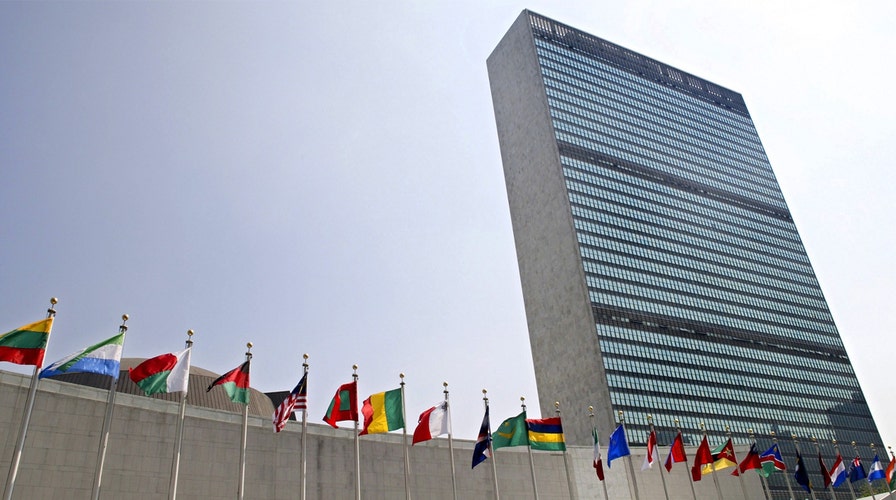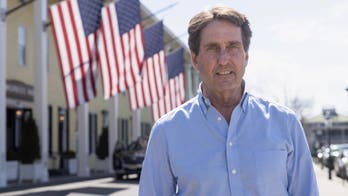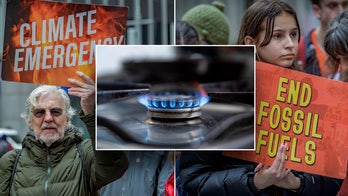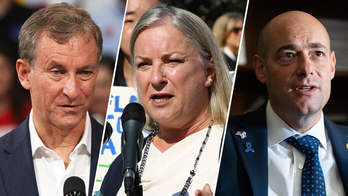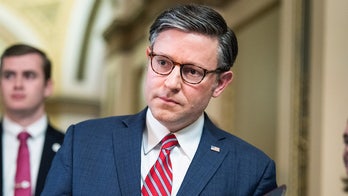President Trump’s proposed budget, which he calls “America First,” would significantly cut funding for United Nations programs.
It includes “deep cuts to foreign aid” and U.N. funding is expected to take a big hit.
Nikki Haley, the United States Ambassador to the U.N., suggested that the U.S. was simply trying to hold the agency accountable.
"This was a promise made to the American people and a goal to restore trust and value at the UN," Haley said in a statement Thursday. "In many areas, the UN spends more money than it should, and in many ways it places a much larger financial burden on the United States than on other countries."
Haley said earlier Thursday that it was time for other countries to step up and pay their fair share.
"We've carried the burden for a really long time,” Haley said. “And it doesn't mean we're not going to continue to pay our due. But at some point, other countries have to step in and start funding these missions, too.”
The proposed budget calls for the consolidation and reorganization of the Department of State, with proposed cuts of nearly 29 percent. The U.S. Mission to the U.N. falls under the State Department.
The United States has historically provided billions of dollars a year in funding to the United Nations. It contributes $594 million to its regular budget and $2.3 billion for peacekeeping missions. The U.S. pays 22 percent of the U.N.’s regular budget and 29 percent of its peacekeeping budget.
“The amount the U.S. would contribute to the U.N. budget would be reduced and the U.S. would not contribute more than 25 percent for U.N. peacekeeping costs,” the budget states.
China and Japan are the second and third largest contributors, respectively, to the U.N. peacekeeping budget, with each contributing about 10 percent.
The Obama administration shelled out $1 billion on the U.N. Green Climate Fund, including $500 million transferred just days before he left office. Trump plans to pull funding for all climate change programs funded by the U.N.
U.N. BUDGET: WOULD YOU BELIEVE $13.9 BILLION?
It’s unclear how deep the cuts to the U.N. will be. But Stéphane Dujarric, a spokesman for U.N. Secretary-General Antonio Guterres, warned any significant cuts would have long-term consequences.
“The Secretary-General is totally committed to reforming the United Nations and ensuring that it is fit for purpose and delivers results in the most efficient and cost-effective manner,” Dujarric said. “However, abrupt funding cuts can force the adoption of ad hoc measures that will undermine the impact of longer-term reform efforts.
Here's a list of 10 ways the UN makes a difference in the lives of millions every day.
— United Nations (@UN) December 26, 2016
See what else we do: https://t.co/MGT7G5uPFL pic.twitter.com/nMxHV0rvkf
The cuts to the U.N. come as no surprise. Trump has several times criticized the value of the organization. In December, Trump tweeted: “The United Nations has such great potential, but right now it is just a club for people to get together, talk and have a good time. So sad!”
Hours later, the U.N. responded on Twitter with a list of “10 ways the UN makes a difference in the lives of millions every day.”
The U.N., which aims to maintain international peace, provides food, assistance, vaccines and peacekeepers to poor nations or those that have experienced a natural disaster or armed conflict. They say the humanitarian aid they offer improves the lives of those in extreme poverty.
These services don’t come cheap, and the bill for U.S. contributions to the U.N. is calculated based on national wealth. Brett Schaeffer of the Heritage Foundation told Fox News that “overall, the U.S. is by far the largest contributor to the U.N. system, providing about 20 percent of total resources each year.”
Some have said that by threatening to cut funding, Trump could be trying to wield influence over the organization. He has said he wants funding to focus on domestic matters rather than international programs.
OBAMA'S LAST MONEY SHOWER FOR THE UN: SOME $9.2 BILLION
Still, Dujarric said he understands the need to boost military spending. But, he added, that should not come at the expense of critical humanitarian aid.
“There is also a need to address the underlying drivers of terrorism through continuing investments in conflict prevention, conflict resolution, countering violent extremism, peacekeeping, peacebuilding, sustainable and inclusive development, the enhancement and respect of human rights, and timely responses to humanitarian crises,” he said. “The international community is facing enormous global challenges that can only be addressed by a strong and effective multilateral system, of which the United Nations remains the fundamental pillar.”
During her Senate confirmation hearing in January, Haley said she was against withholding dues to make changes to an agency – but acknowledged sometimes that tactic is necessary.
“I don't believe in the slash-and-burn approach. You know, as a governor you could never do that. That's not effective,” Haley said. “I do think there are times where you can withhold dues. I don't think you should slash and cut across-the-board because I don't think that will accomplish the goal.”
In her position, Haley reports to Secretary of State Rex Tillerson, who reportedly recently threatened to withdraw from the U.N. Human Rights Council if it did not agree to “considerable reform.”
For now, the U.S. will continue to participate in order to “reiterate our strong principled objection to the Human Rights Council’s biased agenda against Israel,” Tillerson wrote in a letter to nine nonprofit groups this week.
Tillerson’s actions echo the rocky start of the Human Rights Council in 2006, when President George Bush chose not to have the U.S. join the council.
Schaeffer, of the Heritage Foundation, has said that if the U.S. is going to contribute so much money to the U.N., it should have more of a say on how it runs things.
“To change the institution,” he said, “the first thing that needs to change is the thumb-on-the-scales system that makes the U.S. the biggest bill-payer, but just one of 193 voting members when it comes to demanding honesty, efficiency and effectiveness in return for its over-generous payments.”
John Bolton, who served as U.S. ambassador to the U.N. in 2005-2006, told Fox News’ Neil Cavuto in January that all contributions to the U.N. should be voluntary and insisted that the U.S. should “get what we pay for.”
“That revolutionary principle would have a profound impact on the U.N. And the U.N.'s strongest supporters should want that,” Bolton said, “because they should want a U.N. that is effective.”
